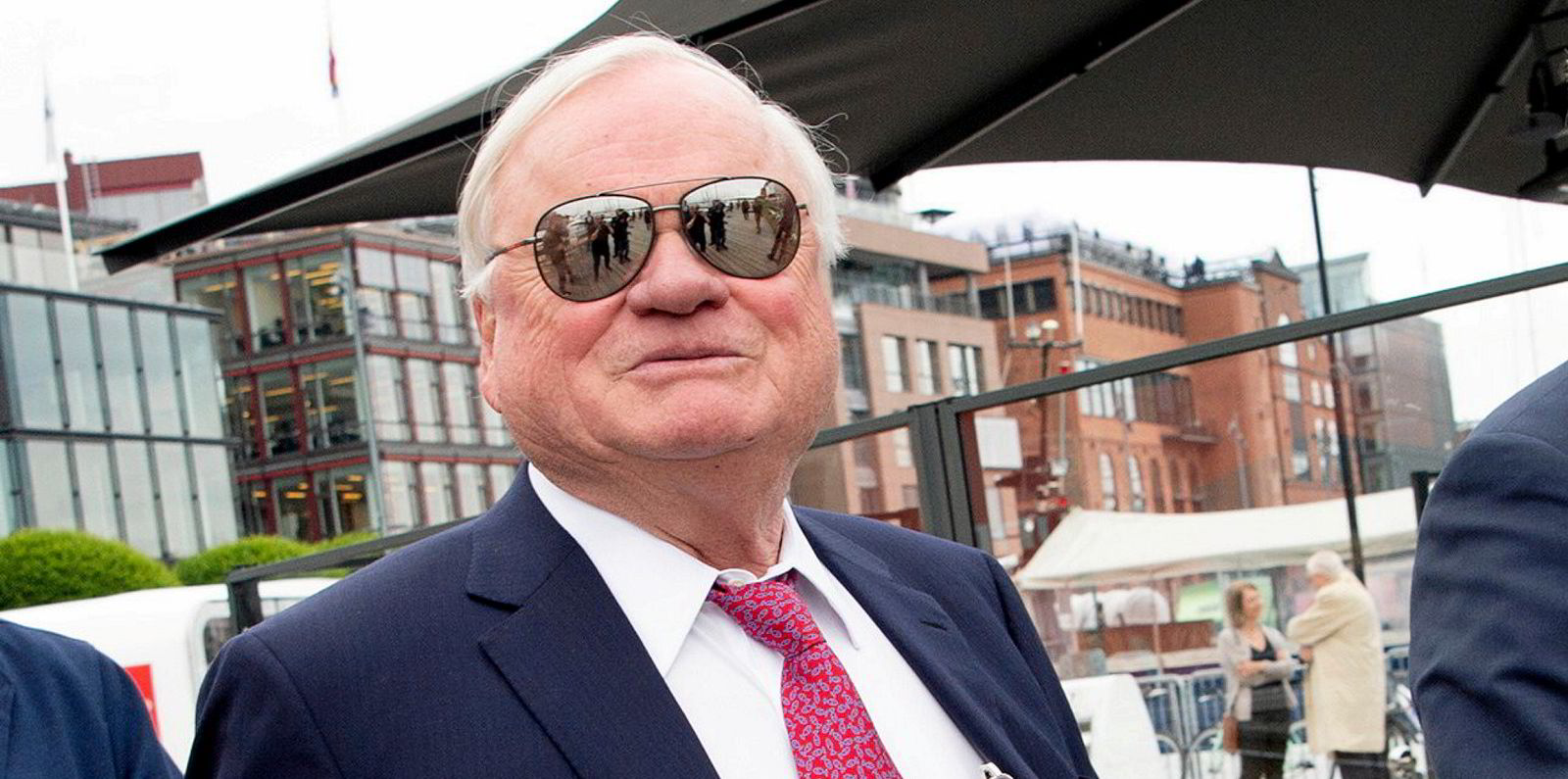John Fredriksen played a key role in making the blockbuster Frontline-Euronav deal happen.
Frontline chief executive Lars Barstad said during a conference call on Monday that the Norwegian-born shipping tycoon and his counterpart Marc Saverys broke a “strategic deadlock” in coming to an agreement for Frontline to acquire 24 of Euronav’s VLCCs.
“This transaction has been made possible by two titans of shipping coming together … namely John Fredriksen and Marc Saverys,” Barstad said.
Fredriksen, he added, was “very involved” in the transaction.
“As we all know, this is a segment that is close to his heart,” Barstad said.
Fredriksen helped the deal along with a $540m loan to get the deal executed quickly.
Last week, Euronav confirmed it was in talks with Frontline to sell it 24 VLCCs for $2.35bn in exchange for Frontline’s 26.1% stake in Euronav for $18.43 per share.
The deal was formally announced by Frontline on Monday.
It will be paid for with the loan, a new five-year, $4.1bn loan and an existing $275m credit facility.
Barstad said the company could also sell older, less efficient ships and look for further sources of capital to avoid drawing down the Fredriksen loan.
It ends an 18-month battle for Euronav that pitted Fredriksen against the Saverys family and began with a $4.2bn merger offer in April 2022.
In January, Frontline dropped its offer, but on 28 September a TradeWinds report said the two sides were nearing the present agreement.
On the call, Barstad said Frontline was acquiring Euronav’s youngest vessels, all of which are eco-designed and nine of which have scrubbers. They have an average age of 5.3 years.
The deal brings the Oslo- and New York-listed company’s fleet to 89 vessels and lowers its average age to 6.1 years.
Frontline will have a fleet totalling 20m dwt, more than double publicly listed runners-up Euronav and International Seaways.
Its VLCC fleet is double the size of second-place DHT Holdings at a time when oil demand is rising, the VLCC orderbook is tiny and the resale market illiquid.
Barstad said record-low orderbooks coincide with rates much higher than long-term averages across shipping segments.
“If the oil demand projections are correct, we look to be at a deficit in the shipping capacity moving forward,” he said.
“We believe that we’re putting Frontline in a unique position in a tight market balance.”




